Army Veteran Brandon Friedman Spent Years Working For The Obama Administration. Now He’s In Dallas, Selling Teas From Post-Conflict Countries.
Brandon Friedman glanced over the National Mall as he drove down Interstate 66 into Washington D.C. from Fairfax, Virginia.
He could see all of the notable landmarks — the Washington Monument, the Lincoln Memorial and the U.S. Capitol Building — shining bright all lit up in the night sky, their lights reflecting on the Potomac River.
Any other time, this would be a beautiful sight. But this wasn’t any other night. This was January 19, 2017, the night before Donald Trump would be sworn into office as President of the United States of America. And Friedman, who had spent almost five years of Barack Obama’s presidency working at the Department of Veterans Affairs and Department Housing & Urban Development, couldn’t stop thinking about that. He couldn’t shake the thought that, the very next morning, he and his colleagues would be turning the reins of their agencies over to a group of people hell-bent on undoing their work.
While he continued driving into D.C. for a happy hour gathering with his old HUD colleagues — including outgoing HUD Secretary Julian Castro and other senior department officials — his mind wandered to what the evening’s small talk might entail. There was no doubt what would dominate the conversation: He knew some of his colleagues were staying in D.C. and that others were leaving, disheartened by Hillary Clinton’s loss; he knew that he had to make a decision himself as far as his post-January 20 plans went; and he knew that, almost certainly, someone at this happy hour would ask him where he stood.
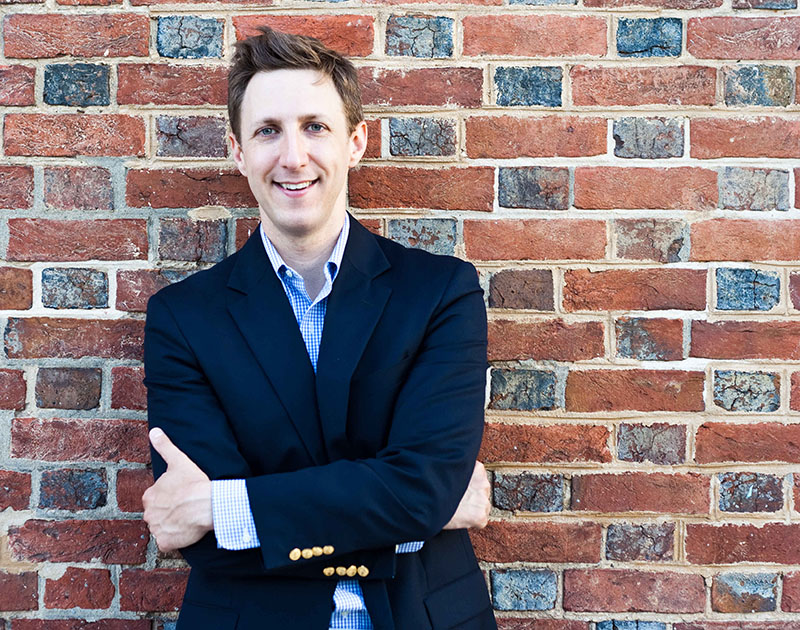
Brandon Friedman.
Over the course of his drive, he made up his mind.
He’d always found the skyline of our nation’s capital to be an inspiring sight. But on this night, all Friedman could think about was how it was one of the most depressing things he’d ever seen — and that he just couldn’t stand his family living there anymore.
“I knew at that point that we were going to leave,” Friedman says of his decision. “We hadn’t sold our house yet, but I knew at that point we weren’t going to stick around.”
* * *
Friedman’s mornings haven’t been overloaded with the stresses of Washington politics since he, his wife Alexandra and their five-year-old son moved back to Dallas last June.
These days, his attention is mostly focused on Rakkasan Tea Company, his startup tea company that makes sure to buy and sell its stock from post-conflict countries including Rwanda, Sri Lanka and Nepal rather than usual tea production hotspots such as China and India.
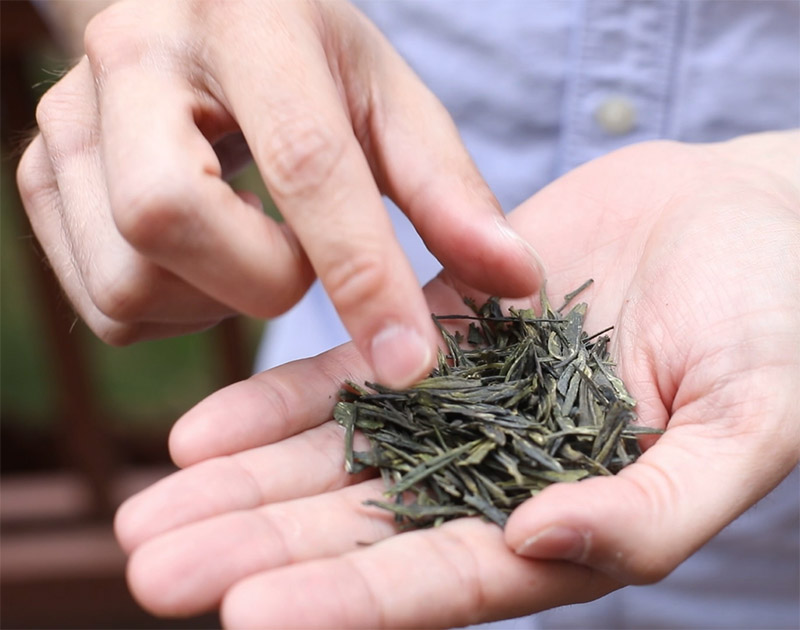
“Rakkasan” is derived from the Japanese word for parachute and is a nickname for one of the U.S. Army’s regiments in the 101st Airborne Division, where Friedman served.
It’s a more laid-back life he leads now that he’s removed himself from the day-to-day D.C. grind. He arrives at his two-room, 260-square-foot office in a Deep Ellum co-working building at around 11 a.m. each morning, sometimes carrying boxes full of tea or packaging materials. (Full disclosure: Central Track also operates out of this same building.) Then Friedman spends his day receiving and fulfilling online tea orders, getting his tea into more brick-and-mortar retailers and researching tea estates in countries that Rakkasan might want to include in its portfolio. When he needs a break from that, he’ll take to his very active Twitter account, where he’s not at all shy about sharing his firm political positions to more than 40,000 followers.
These days, Friedman’s Twitter account is one of the few obvious reminders of his past. At first glance, the 39-year-old doesn’t really look the part of a former presidential appointee. This is in part because he’s traded in his old suit-and-tie look for the standard jeans, button-down shirt, sneakers and baseball cap style of your token middle-aged suburban dad — although, he’ll have you know, he lives in East Dallas. Another reason is because, offline anyway, he’s not really the talkative type; rather, he prefers to work behind the scenes and skirts chances at chit-chat — even with presidents.
“I was in the same room with [Obama] a couple of times, and once the meetings ended, everyone would rush over to shake his hand or get a photo,” Friedman says, recalling his time in Washington. “But that’s just not who I am. I was about getting the job done. I didn’t like to gawk.”
His desire to stay out of the limelight is why, despite his past, Friedman kept out of Dallas politics, even during this contentious election period. Well, for the most part: One former Dallas County Democratic Party chair did notice Friedman’s recent move back to the region and regularly invites him to party events. But Friedman’s only accepted one invitation — to attend a Democratic primary debate. And that visit was cut short due to a lack of interest on the part of his five-year-old son, whom Friedman brought along as his plus one.
His decision to stay out of the political fray is perhaps surprising, though, considering how so many other former Obama staffers and appointees have turned to running for office since leaving their posts.
He’s qualified for office, that’s for sure. Objectively, Friedman boasts a resume that any political candidate would envy.
* * *
Before getting into the tea business, Friedman’s adult life was almost exclusively one of service.
Right after 9/11, he served two tours of duty across Pakistan, Iraq and Afghanistan as an Army officer in the 101st Airborne Division. He was even involved in Operation Anaconda, the first major battle on the ground in Afghanistan.
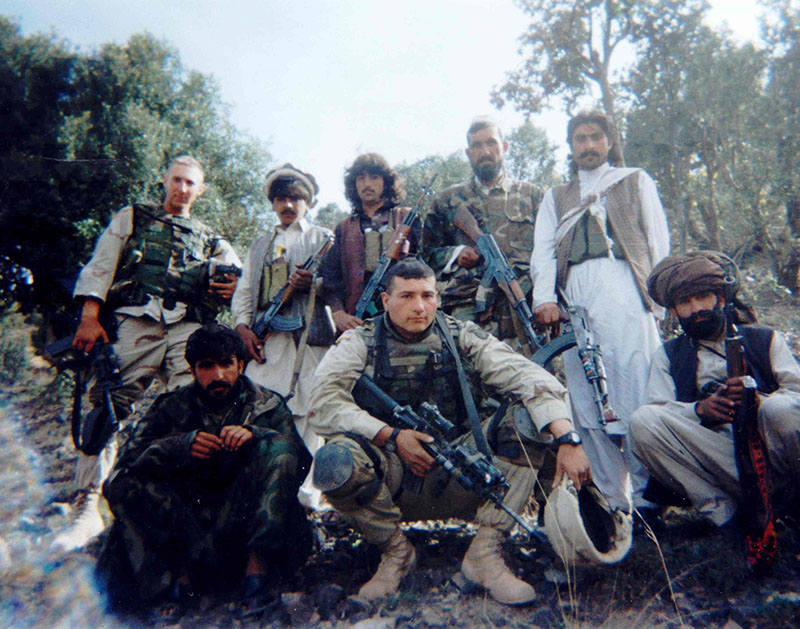
Friedman (far left) and U.S. troops with Afghan fighters.
After completing his time in the Army in 2004, the Louisiana native came to North Texas and took to blogging about his experiences in the war and as a veteran while studying toward his Master of Public Affairs at UT Dallas, which he received in 2006. His writing proved so adept that an old professor suggested that he pitch a book — an idea that led to the eventual publication of his 2007 memoir, The War I Always Wanted, which The Military Times called one of the 10 best military books of the decade.
In the wake of his book’s release, doors started to open for Friedman, who has since penned guest pieces for major news publications such as the New York Times, Time Magazine, The Washington Post, The Guardian and The New York Daily News. He’s also appeared as a regular guest on CNN, MSNBC, the BBC, C-SPAN and Al Jazeera. That exposure then landed him a job at VoteVets, a Super PAC that backs Democratic and progressive-leaning veterans seeking public office.
While at VoteVets, Friedman’s work caught the eye of now-Senator Tammy Duckworth, who recruited him to the VA, where he was appointed by Obama to be the director of digital strategy, a post he held until August 2012. Under his watch, the VA opened itself up via social media so it could better communicate with veterans around the country at the more than 1,000 VA medical centers. Having used all the services the VA offers to veterans himself, Friedman says he understood the frustration that came with the department’s history of poor communication. He aimed to alleviate that tension by enabling each VA hospital to have social media accounts and redesigning the VA’s website three times.
“What I found when I got there was there was people waiting for leadership to give them the opportunity,” Friedman says. “We had the keys to the car, and we empowered hospitals and the PIOs there to communicate with their patients.”
After leaving the VA in August 2012, Friedman worked in corporate PR at the FleishmanHillard Public Relations & Marketing Agency for two years. But then the Obama administration called again, this time appointing him to be the deputy assistant secretary for public affairs at HUD — a job he held from March 2014 until July 2015. His last year and a half in D.C. was spent working with the McPherson Square Group, a PR consulting firm that he founded with fellow VA alumna, Lauren Bailey.
But while he felt good about the work he was doing, Friedman says he was also fully aware of how Obama’s presidency had galvanized the conservative voters who threw their enthusiastic support behind Trump. So when the hammer dropped on November 8, 2016, and Trump went from being the former host of The Apprentice to the president-elect, it was the final straw for Friedman.
“Once Donald Trump got elected,” Friedman says with a still-incredulous chuckle, “there were thousands of people who didn’t know what they were going to do next because they thought they were going to be working in the Clinton administration for at least four years. And I had no interest in sticking around with a Trump Administration in D.C.”
* * *
The first time Friedman began toying with the idea of what to do after his time in D.C. was in August 2016. He’d been in the public relations and politics games for almost a decade at that point, and he knew that, whatever his next step might be, it had to involve more than just making a profit.
He thought back to his time in Iraq and Afghanistan after the 2003 invasion, when he and his troops would attend community meetings. And he remembered that each of those meetings featured unifying trait — that they all took place over tea.
“We never conducted a meeting with any of the locals unless it was over tea,” Friedman says. “It’s what they do over there. Everybody drinks tea. It’s a social thing, and it sort of lubricates the whole [conversation] — everybody drinking and talking and doing business.”
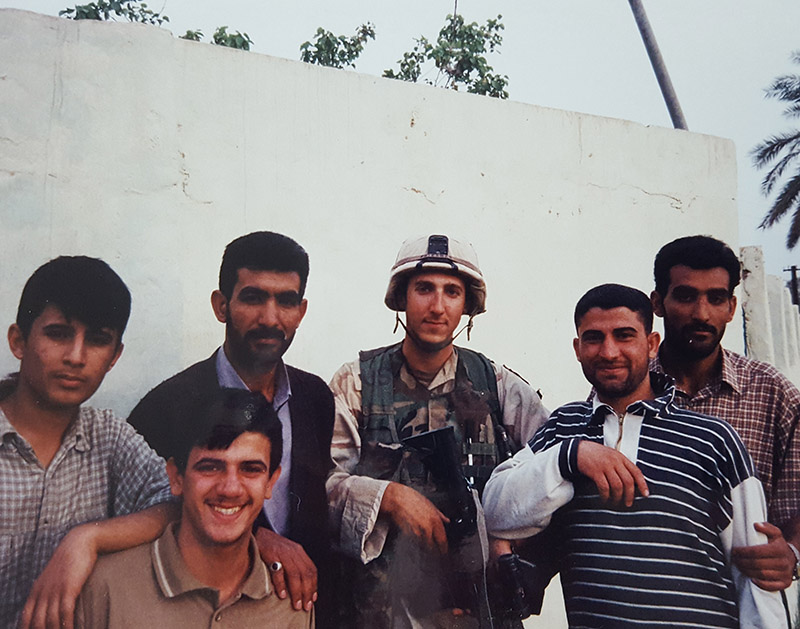
Friedman with Iraqi locals.
Friedman had enjoyed those meetings. More than that, he missed them. So he set out to recapture the feelings he felt in those gatherings by starting a tea company of his own. His own life, he figured, was a testament to the change tea can have: He grew up drinking gallons of iced tea, then swore off the stuff until his time in the military showed him its potential to bring people together.
With his new company, he would set out to show others the power of tea that he himself had witnessed.
“The way I looked at it was we could hire veterans at Rakkasan Tea Company and we could help countries recover from war,” Friedman says. “In that sense, we would be helping communities recover from war both at home and abroad.”
He linked up with some of his old D.C. network to make that happen. First, Friedman reached out to Vet Impact in D.C., a nonprofit that helps veterans launch international businesses. They put him in touch with Deloitte Consulting, Bunker Labs and a team of business students at Georgetown University, each of which were instrumental in getting Rakkasan’s infrastructure in place. Then, after his original business partner left Rakkasan, he started on his mission of hiring vets by bringing on Terrence Kamauf, a former Green Beret who had also served under Friedman in the 101st Airborne Division.
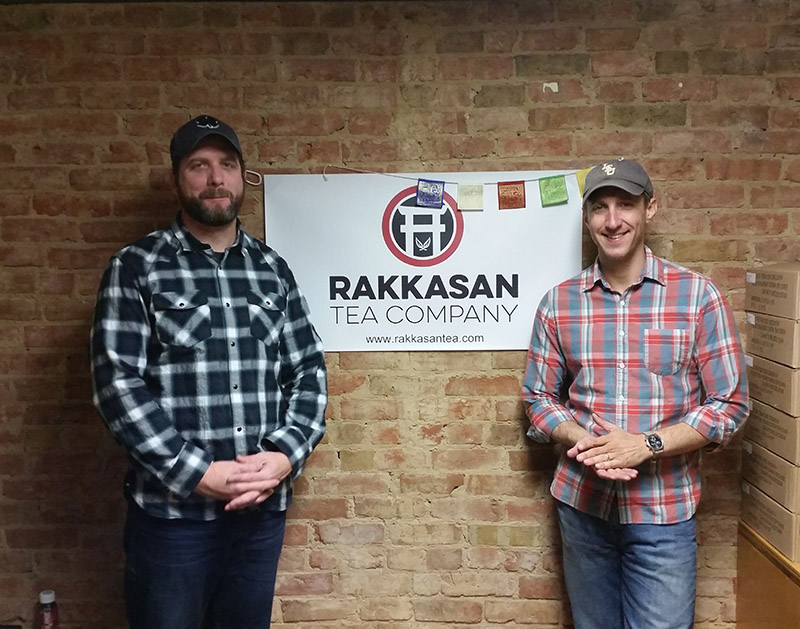
Kamauf and Friedman in their Deep Ellum office.
An August 2017 Kickstarter campaign further helped Rakkasan establish itself by raising $36,000 in crowd-funded capital. And internet investors weren’t the only ones to see Rakkasan’s potential, either: Before Rakkasan even shipped out its first order of tea, The Global Chamber Dallas recognized Rakkasan as the “Startup Impact Importer of the Year.”
One person who regularly sees that impact is Jeni Dodd, a supplier of Rakkasan’s Nepalese teas. Dodd runs Jeni’s Teas in Manhattan, but splits her time between New York and Nepal, where she looks for new tea suppliers and works with local communities to cultivate teas. Dodd was in Nepal in 2015 during the 7.8 magnitude earthquake that left 9,000 people dead, and she’s seen firsthand how Rakkasan’s dedication to buying tea from small estates in areas that are recovering from war or natural disasters is an effective and humane way to aid in recovery.
“One of the villages I work in was able to hire teachers for the local school,” says Dodd of just what Rakkasan’s devotion of resources can bring to these communities. “That’s a tangible effect that immediately improves the quality of life.”
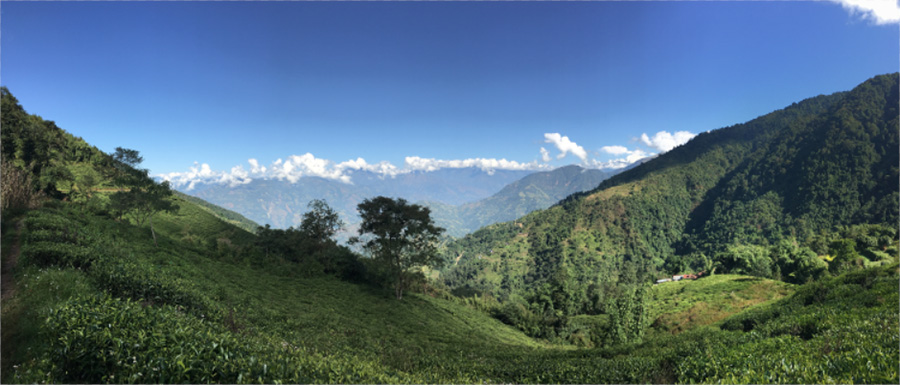
A tea estate in Panchthar, Nepal, where Rakkasan Tea’s ‘White Sunrise’ comes from. Photo courtesy of Jeni Dodd.
But beyond doing good, Rakkasan also has real potential to do well, says Kyle Stewart. As the owner of Dallas tea and coffee shop The Cultured Cup, Stewart is Dallas’ leading tea expert, and he has seen an increased demand for tea that doesn’t come from the usual places like China and India in recent years. More than that, he says that he often finds that tea products tend to sell better when a customer is aware of the story — where the tea comes from, who is behind it and so on. In other words, Stewart believes the market is looking for a company just like Friedman’s.
“[Rakkasan Tea] can focus on these kinds of undiscovered gems and put more information about what these countries do out there into the mainstream,” Stewart says. “To be able to give back to these countries for their quality products, I think it’s a win-win.”
Others think so, too. Following a successful holiday sales period, Friedman and Kamauf have been meeting with potential investors in helping to grow their business. They’ve also been garnering more traction with brick-and-mortar retailers interested in joining Deep Ellum’s 1890 Marketplace and McKinney’s Fair & Square Imports by stocking Rakkasan’s products.
It helps that Rakkasan’s teas aren’t just doing good or telling interesting stories — they’re quality products. Its Nepalese Himalayan Golden Tips packs a proper caffeine boost. The White Sunrise of Nepal flavor is delightfully refreshing. Meanwhile, the Rwandan Rukeri Black option packs a bold taste that parallels coffee. And those are just some of the teas that Rakkasan is offering currently.
“It’s a good start,” Friedman says. “But we need to take on some investment capital that will help us advertise and get more teas. We know we can bring that to people, so now it’s a matter of us sustaining our sales and hopefully getting an infusion of some capital so we can grow.”
* * *
When Friedman first moved back to Dallas last summer, Democratic Party leaders in Texas approached him about running for office at either the local or state level — his call. He immediately said no, saying he’d prefer at this point to advise his McPherson Square Group clients rather than hold office himself.
Whether that means forever is a point of debate among Friedman’s friends.
His old boss, the former San Antonio mayor and HUD Secretary Julian Castro, who himself is openly considering a return to the political fray soon with a potential presidential campaign in 2020, says he still believes his former staffer is well-suited for any undertaking — be it seeking public office or growing a small business.
“I don’t believe there’s pressure unless you put it on yourself,” Castro says over the phone — coincidentally, on the one-year anniversary of the happy hour Friedman was driving to when he decided to leave Washington — of any burden Friedman might feel about any possible political future. “For Brandon, he’s relatively young, but he’s had these tremendously diverse experiences, from fighting in a war to starting his own company. He’s well prepared for whatever he wants to do. If he chooses to run for office, he’d make a great public servant.”
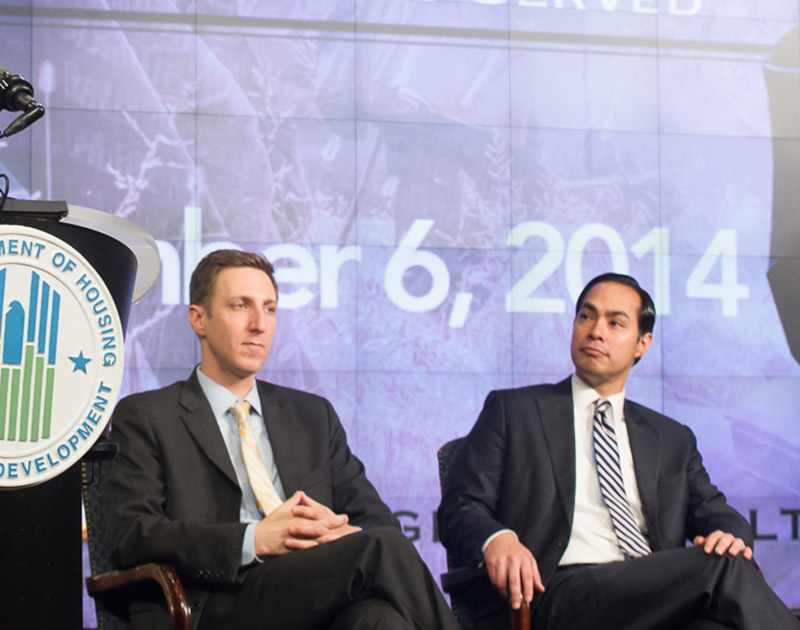
Friedman and Castro at a HUD event.
But as the 2018 midterm elections near, Friedman’s name, which has appeared in bylines for two recent New York Daily News op-eds (one about Trump’s call for a parade to show off the military’s might and Trump’s call to arm school teachers after the recent Florida school shooting), couldn’t be farther from appearing on a ballot. This is what he wanted, he says while sitting in his Deep Ellum office and preparing to ship a six-canister package to Reykjavik, Iceland — Rakkasan’s first international order.
It’s not that he’s stoked about what’s happening in D.C. these days. He’s decidedly not, as his Twitter feed and op-ed pieces more than make clear. Thinking back to that night when he drove into D.C. to say his goodbye to the city that was his home for eight years, he says his worst fears about Trump — the ones that inspired him to walk away in the first place — are coming true. He very much believes that the influence the president has had on culture and politics has been toxic.
“Sometimes I feel a twinge of guilt for not being there in Washington,” Friedman says. “But I tell myself something that I know — that, in times like these, you can have more of an influence and impact outside of D.C. than you can inside of D.C.”
He compares it to when he left the military feeling like he could’ve done more. Now, as he did then, he just has to remind himself that his job was done.
“When you work in public service, any time you leave, you realize how much more there is to be done and how much more you can do,” Friedman says. “But I don’t think it’s humanly possible [to do it all]. You gotta pace yourself. This is a marathon, even though I don’t think you ever really lose that sense of ‘Man, I could’ve done more.’”
Still, while he maintains that he has no interest in fundraising or shaking hands, a grin comes over his face and he lets out a light sigh when he’s pressed further about any kind of political aspirations in the future.
“Anybody who works in politics would never totally rule it out,” Friedman says, sipping on one of his teas that now consume his life. “There’s a million other ways you can help move the ball forward on policy for your team without explicitly running for office yourself. But I guess nothing is ever off the table.”
All photos courtesy of Brandon Friedman.
